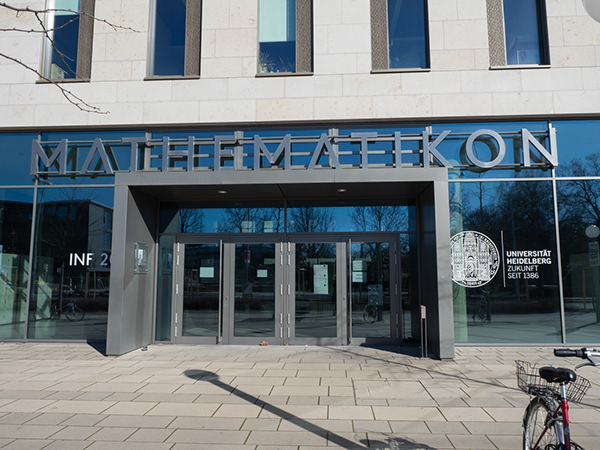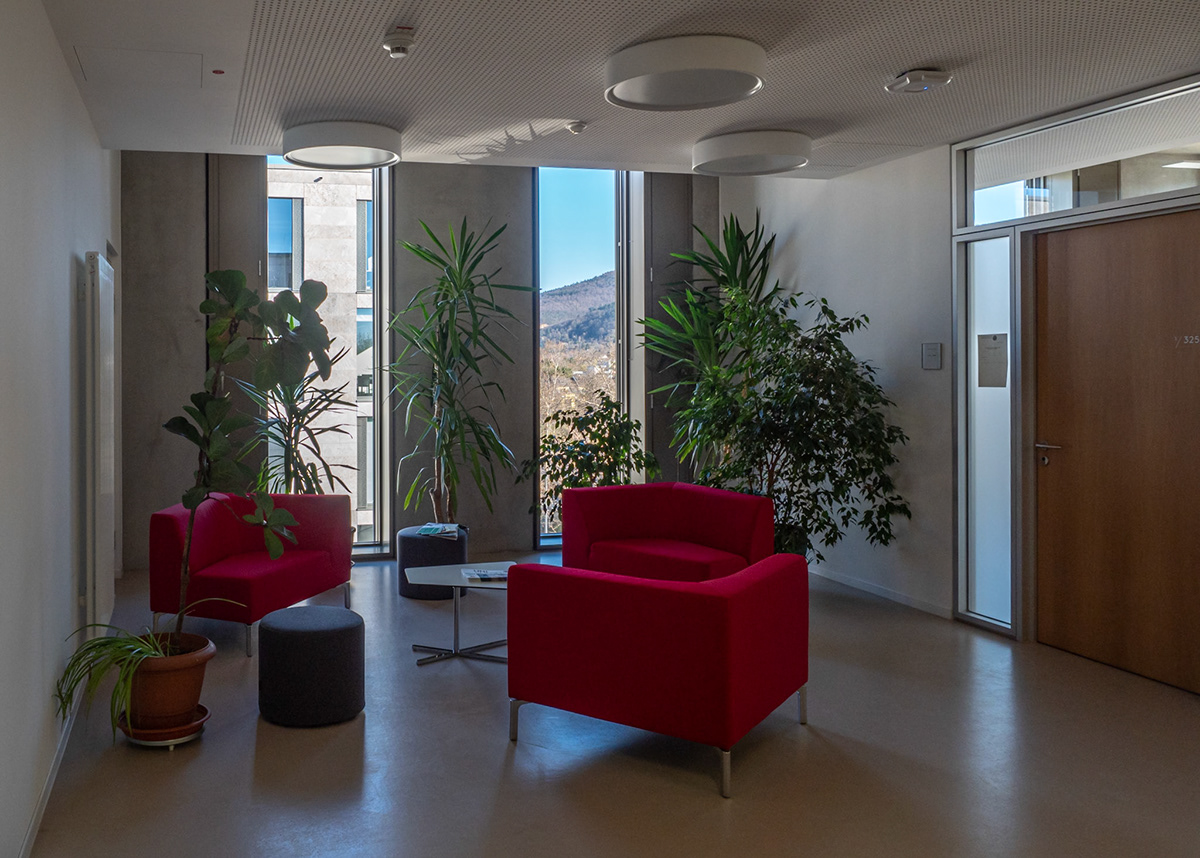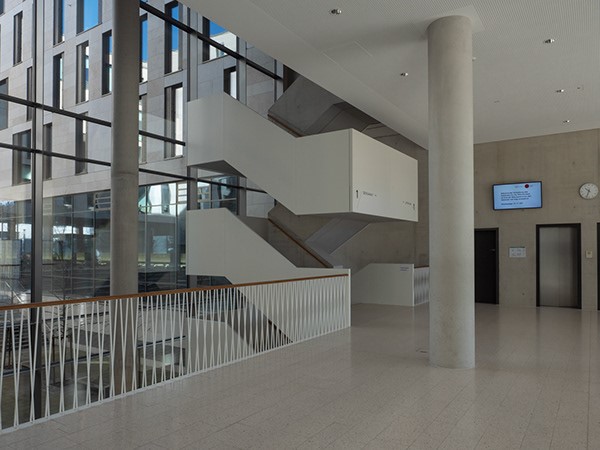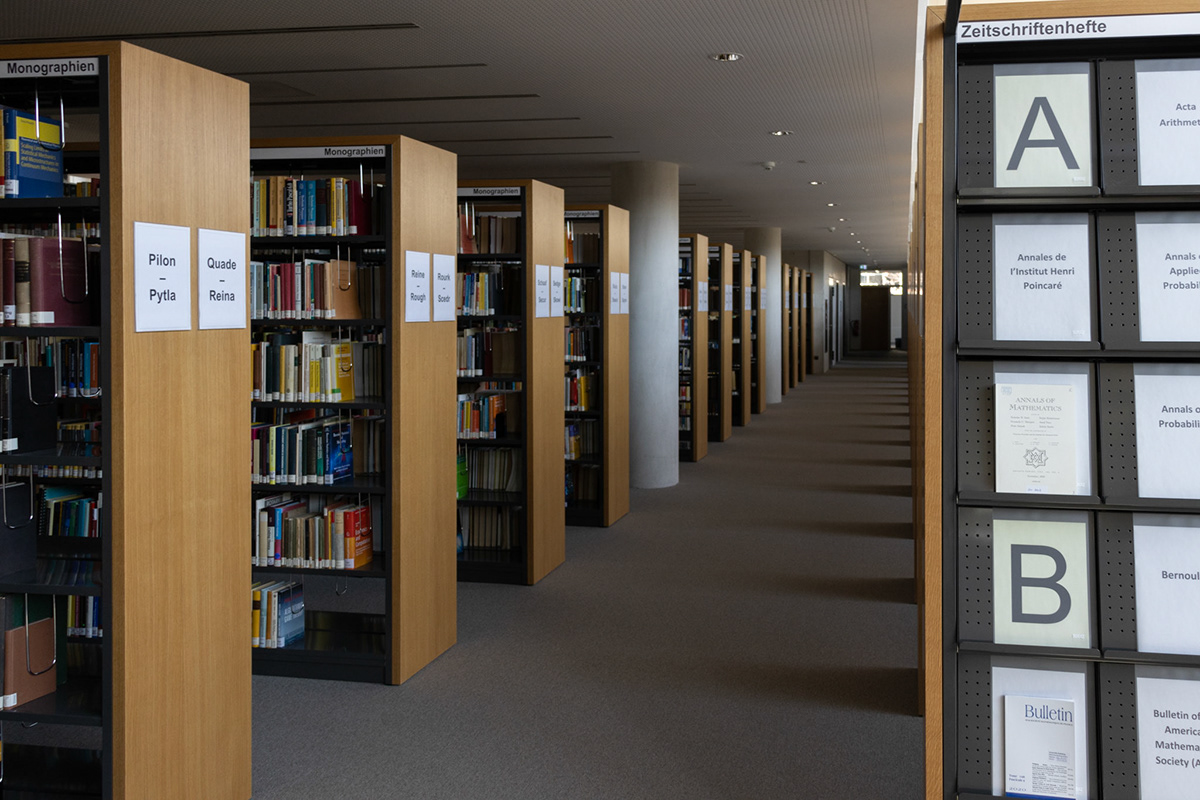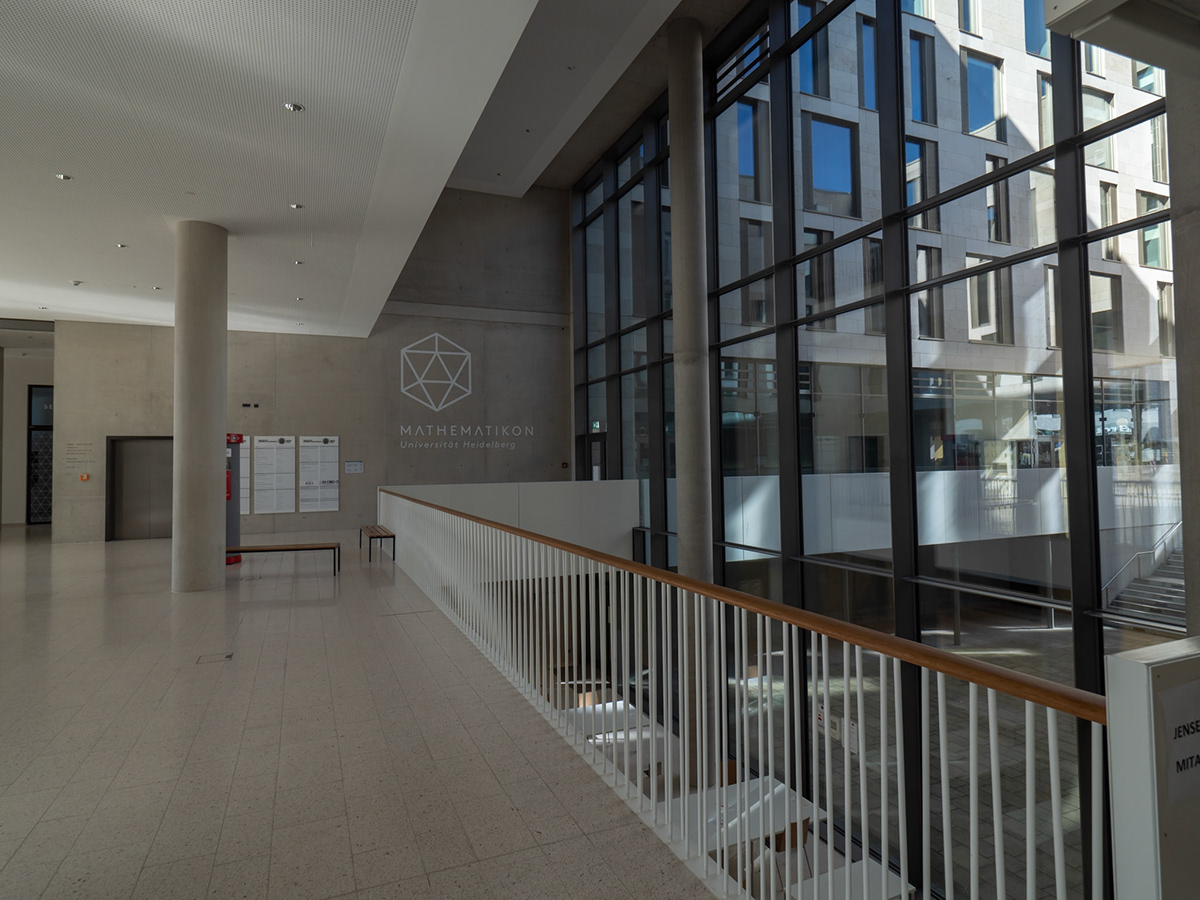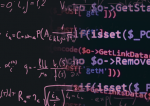
Master Scientific Computing
The program, run by the Faculty for Mathematics and Computer Science in close collaboration with the Interdisciplinary Center for Scientific Computing (IWR) teaches students both the theoretical concepts of computer-based mathematical modelling and the practical aspects of realising complex algorithms in scientific software. By studying an application area as a minor subject, the education is focussed on real-world problems and the interdisciplinary communication that shapes the modern world of research & development.
Study Plan
The first year consists of courses in the three areas of this master program: Mathematics, Computer Science and a Field of Application. In the second year students prepare and conduct their research project. This phase is started with two specialization lectures and leads to a master project. To this end, students should choose a combination of courses in terms 1, 2 and 3 leading to a specialization within the master course.
Facts & Figures Master Scientific Computing
| Degree | Master of Science (M. Sc.) |
| Type of Study | Consecutive |
| Start of Program | Winter and summer semester |
| Standard Period of Study | 4 semesters |
| Languages | English, some German |
| Application Procedure | Consecutive master's program with access restriction |
Current Degree Regulations, Admission Regulations & Course Handbooks Master Scientific Computing
Version of October 5th, 2022
Version of October 5th, 2022
Program Overview
Mathematical methods taught in this master program include:
- Numerical methods for ODE and PDE
- Statistics and data analysis
- Differential geometry and computer algebra
- Linear and non-linear optimization methods
- Computational methods in fluid dynamics
Computer Science methods list for example:
- Parallel computing
- Scientific visualization
- Mixed-integer programming
- Spatial databases
- Image processing techniques
Applications for Scientific Computing come from:
- Physics and Astronomy
- Robotics
- Weather and Climate Modelling
- Text and Data Mining
- Theoretical Chemistry
- Biology
- Scientific Visualization
- Economics
- Social Sciences
- Cultural Heritage
The program is linked with HGS MathComp, the doctoral school for mathematical and computational modeling at Heidelberg University. Top students in the first year course will get an invitation to join the doctoral school already for the second master year, opening the possibility to a direct integration into the HGS MathComp PhD program, a master course directly leading to a PhD project (research oriented master track).
Within the master program Scientific Computing
students can choose from a wide variety of modules and courses. This leads to several possible specializations within the master course. These will finally lead to a master thesis research in one of the groups working in that specialization area.
The following specialization tracks are meant as a guideline for the course selection and the organization of a personal and individual study program.
Data & Text Mining
The objective of the specialization Data and Text Mining
in the International Masters Program of Scientific Computing is to study models, techniques, tools, and architectures in support of managing and analyzing large-scale and diverse data sets. The focus is on traditional data mining concepts such as clustering, association rule mining, and classification to more advanced techniques like mining graph data, data/text streams, document collections, and social network data. Techniques such as features extraction approaches and probabilistic data analysis models will be learned, the latter playing an important role in analyzing text data. The applications include traditional frameworks such as scientific data warehouses employed in the natural sciences, the analysis of large-scale social networks, and the exploration of document collections, the latter being a prominent theme in the Digital Humanities.
Simulation & Optimization
The objective of the specialization Simulation and Optimization
in the International Masters Program of Scientific Computing is to study techniques, tools, and architectures for the large scale simulation and optimization of discrete and continuous models. The focus is on efficient state-of-the-art methods allowing the solution of large instances such as higher-order finite element methods, a-posteriori error control and adaptive methods, multi-level and domain decomposition methods, all-at-once optimization or mixed-integer optimization. A second focus is placed on the efficient implementation of the above-mentioned methods on modern computer hardware including aspects of parallel high-performance computing, software design and object-oriented programming. Furthermore there is overlap of this specialization with the specializations in "Analysis & Modelling" as well as "Scientific Visualization" and "Statistics". An individual study plan can easily be arranged that combines these fields.
Statistics
The objective of the specialization Statistics
in the International Masters Program of Scientific Computing is to study tools and methods of mathematical statistics, probability theory, stochastic modeling, and data analysis, and to apply them to important real world problems.
Modelling & Applied Analysis
The objective of the specialization Modelling and Applied Analysis
in the International Masters Program of Scientific Computing is to study analytical methods and tools which are useful in the derivation, analysis, simulation and optimization of complex systems. Our aim ist to understand the spatial and temporal behaviour of these systems in dependence of their intrinsic parameters and initial data. In particular, the focus of this program lies in the investigation of problems arising in the field of Materials Science, Biology and Medicine.
Computational Aspects in Number Theory
The area Computational aspects in Number Theory
seeks Master students who on the one hand wish to acquire deep theoretical knowledge in Number Theory and Arithmetic Geometry and on the other hand want to approach the topic from a computational view point. This requires a strong background in the above themes and at the same time interest in computer algebra, computational issues and computer science. Current themes are questions on modular forms (classical or Drinfeldian), the computation of Heegner points over function fields, and explicit equations of certain deformation rings that occur in number theory.
Imaging Science
The specialization Imaging Science
within the International Masters Program of Scientific Computing covers all aspects of visual data analysis ranging from low-level image processing to high-level computer vision and it has deep foundations in applied mathematics (statistics, variational analysis, optimization), machine learning, and artificial intelligence. Besides covering the state-of-the-art of the field, there is also a strong focus on applying this basic level research to challenging applications in diverse areas ranging from industry to research in the life sciences and humanities.
Scientific Visualization
The objective of the specialization "Scientific Visualization" is to generate meaningful visualizations for the exploration of the acquired data. These visualizations have to be fast and interactive in order to give feedback to the user which enables self exploration. The tools to be developped have to find the most significant critical changes or hot spots in high dimensional spaces and condense these features in projections dealing with colors, space and time. Therefore the training involves mathematical skills in dynamical systems, curvature analysis, graph theory, topological invariants and abstract thinking. On the other hand the focus is on good programming skills regarding parallel multicore programming, the use of graphical embedded systems, sorting strategies, image analysis and image processing.
Students of the master's program Scientific Computing have to add an application area (minor subject) to their portfolio of studies. In the application area, 18 ECTS points have to be collected by taking suitable courses, usually from the master's program of the minor field.
Typical application areas include
- Physics
- Chemistry
- Economics
- Biology
Application Area: Environmental Physics
Fundamentals of Computational Environmental Physics (lecture; winter term; 8 ECTS)
Chaotic and complex environmental systems (lecture; summer term; 4 ECTS)
Seminar Environmental Physics (Prof. K.Roth) (seminar; any time; 6 ECTS)
Application Area: Biosciences
Introduction to Systems Biology (lecture series; summer term; 2+1 ECTS)
Lab practical with project (3 months) (practical lab training; any time; 15 ECTS)
Application Area: Economics
Package 1 (16 ECTS):
Master Module "Microeconomics" (lecture+exercise; winter term; 8 ECTS)
Master Module "Public Economics" (lecture+exercise; summer term; 8 ECTS)
Package 2 (20 ECTS):
Bachelor Module "Game Theory" (in German) (lecture+exercise; summer term; 6 ECTS)
Master Module "Microeconomics" (lecture+exercise; winter term; 8 ECTS)
one more elective master module (lecture+exercise; summer term; 6 ECTS)
Application Area: Biophysics
Theoretical Biophysics (lecture+exercise; summer term; 6 ECTS)
Experimental Biophysics (lecture+exercise; winter term; 6 ECTS)
Nonlinear Dynamics (extraordinary course; 2 ECTS)
Stochastic Dynamic (extraordinary course; 2 ECTS)
Research Seminar on special topics of Biophysics (exercise; winter/summer term; 2 ECTS)
Application Area: Medical Physics
Medical Physics I (4h-lecture; winter term; 6 ECTS)
Medical Physics II (4h-lecture; summer term, 6 ECTS)
Advanced Seminar on Medical Physics (exercise; winter/summer term; 6 ECTS)
Application Area: Computational Linguistics (tentative)
Introduction to Computer Linguistics (bachelor; German; 6 ECTS)
Statistical Methods for Computer Linguistics (bachelor; G/E; 6 ECTS)
Any main seminar (Hauptseminar) in Computer Linguistics (master level; 8 ECTS)
This is a tentative positive list for modules in Computer Linguistics. Due to the nature of the field, many modules are close to computer science. Modules with a strong emphasis on CS techniques will not be accepted for application field credits.
White List (Modules students are allowed to take)
| Quantum Computing and Quantum Information (MVSpec) | for Application Area Physics |
| Information Extraction and Applications (SS-CL) | for Application Area Computer Lingustics |
| Advancecd Microeconomics (MScE1A) | for Application Area Economics |
| Advanced Macroeconomics (MScE1B) | for Application Area Economics |
| Advanced Econometrics (MScE1C) | for Application Area Economics |
Black List (Modules students are not allowed to take)
| Introduction to Neural Networks and Sequence-to-Sequence Learning (SS-CL) | for Application Area Computer Linguistics |
| Advanced Mathematics (MScE1D) | for Application Area Economics |
FAQs Master Scientific Computing
That is absolutely possible. Please e-mail a request for crediting your external study achievements to the examinations office and to the study advisor including the following details:
- a list of modules, that should be credited and what you are expecting them to be credited for,
- a module description of the courses that should be credited, at best a link to this description,
- a copy of the transcripts, that list the modules in question.
After we received your request the study commission will discuss about it and the accepted modules will be added to your transcript.
By decision of the study committee, of the four mandatory modules in the master program Economics the modules Advanced Mathematics and Advanced Econometrics cannot be picked for the application area. They are too close to our master's program and students from the master Scientific Computing should already know most of the content. The other two Advanced microeconomics and Advanced macroeconomics as well as all elective modules and the seminars – if you get a seat in them! – can be picked.
Many faculties are offering own courses to teach basics in mathematics and computer science. These courses are off limits for our students: They do not count towards the application area. However, some "package deals" include single modules from this group. This is a compromise to make the package deals self-contained and manageable. The course combinations in the package deals are confirmed in this exact combination. Picking several courses from different package deals (modules near to maths and computer science) will not be confirmed by the study committee.
General advice: Select courses from the application area itself: Real physics courses in physics, real economics courses in economics. Granted, many of these courses also teach maths, but this is the natural effect of maths as a language of models.
The master's program has a rather direct approach to define specializations. The specialization is usually difficult to define beforehand. Instead, all modules directly influencing your master research project are part of your specialization. The selection is defined by the thesis advisor. When you start your research project, the thesis advisor will check your modules and compile a list of those modules that he/she sees fitting as directly linked to your research. Any of these modules (from Maths and Computer Science) can count towards your load in the specialization. This is one of the reasons why you should contact possible thesis supervisors early.
Remark: The specializations listed on the web pages for the master's program can be regarded as examples for specializations. Usually it is not a problem for a student to fill the mandatory specialization credits.
For master students of Scientific Computing two options are available to get access to GPU Clusters.
- The faculty of Mathematics and Computer Science established two compute servers for projects of master students. The faculty handles access to these two servers. Please contact the Dean's office for access to the servers.
- As a member of an IWR research group, please contact the head of your research group. She resp. he can register you as an IWR student member and then you can access the IWR compute servers. These servers are for IWR members only.
The early membership option for master students is meant for students who start their master research project and have an above-average grade score. The application is done through your supervisor: She resp. he has to write an application letter to the graduate school stating that
- your grades so far are exceptional (CV and transcript),
- your master topic can be a basis for a PhD project,
- should you continue to develop in the same track, she resp. he will offer you a PhD position in the work group.
Based on such a recommendation, the coordinators of the graduate school will decide on your master student membership within 4 weeks. Optionally, the school will also offer you a scholarship to fund your research period.
Finding a thesis supervisor is an important task for a student. You should talk to potential supervisors already during your second semester and make sure to find a supervisor as early as possible. The supervisor might ask you to complete additional courses before you start your thesis. To work on your thesis, you usually will start with defining the current state-of-the-art in the topic of your research. This will be done by reading relevant publications to familiarize yourself with the research topic. Once you start your research, you have to register your master's thesis with the faculty. For this, please collect the relevant document at the examinations office, complete the form and hand it back in.
Remark: According to the examination regulations, §14.2, you can register your master thesis once you have completed and registered 45 credits towards your degree.
All students in the Scientific Computing master's program have to complete three regular seminars at the faculty of mathematics and computer science listed as seminars for this master's program in LSF:
- a seminar in mathematics,
- a seminar in computer science (can be replaced by an advanced practical),
- a master seminar.
The master seminar is a regular seminar in mathematics or computer science. However, you cannot select freely what seminar to attend, but you have to follow the guidelines of your thesis supervisor when choosing the master seminar. Usually she resp. he will ask you to attend one of his regular seminars or point you to a suitable other seminar. The topic of this seminar should be chosen in preparation of your thesis, but the master seminar is not a seminar about your thesis research.
Remark: At the end of the thesis, the student gives an open presentation on the finding of their thesis research. This presentation is part of their thesis. It has nothing to do with the above mentioned master seminar. Note that the master's program Data and Computer Science has different regulations!
First things first - please keep your visa expiry in mind, so you can start your visa extension in proper time! You should start preparing your documents six to eight weeks before your visa expires. One of the documents you need, is the Studienstandsbescheinigung. It is issued by the international relations office after handing in a signed statement by the study counsellor of the program, Dr. Michael Winckler. For receiving this statement you need to make an appointment with Dr. Winckler, to which you bring along
- the form Studienstandsbescheinigung from the university's international relations office,
- a course list, filled in in advance of the appointment,
- your current transcript of records.
Dr. Winckler signs the Studienstandsbescheinigung and you can take both forms to the international relations office, where the "Studienstandsbescheinigung" is issued within 10 working days.


